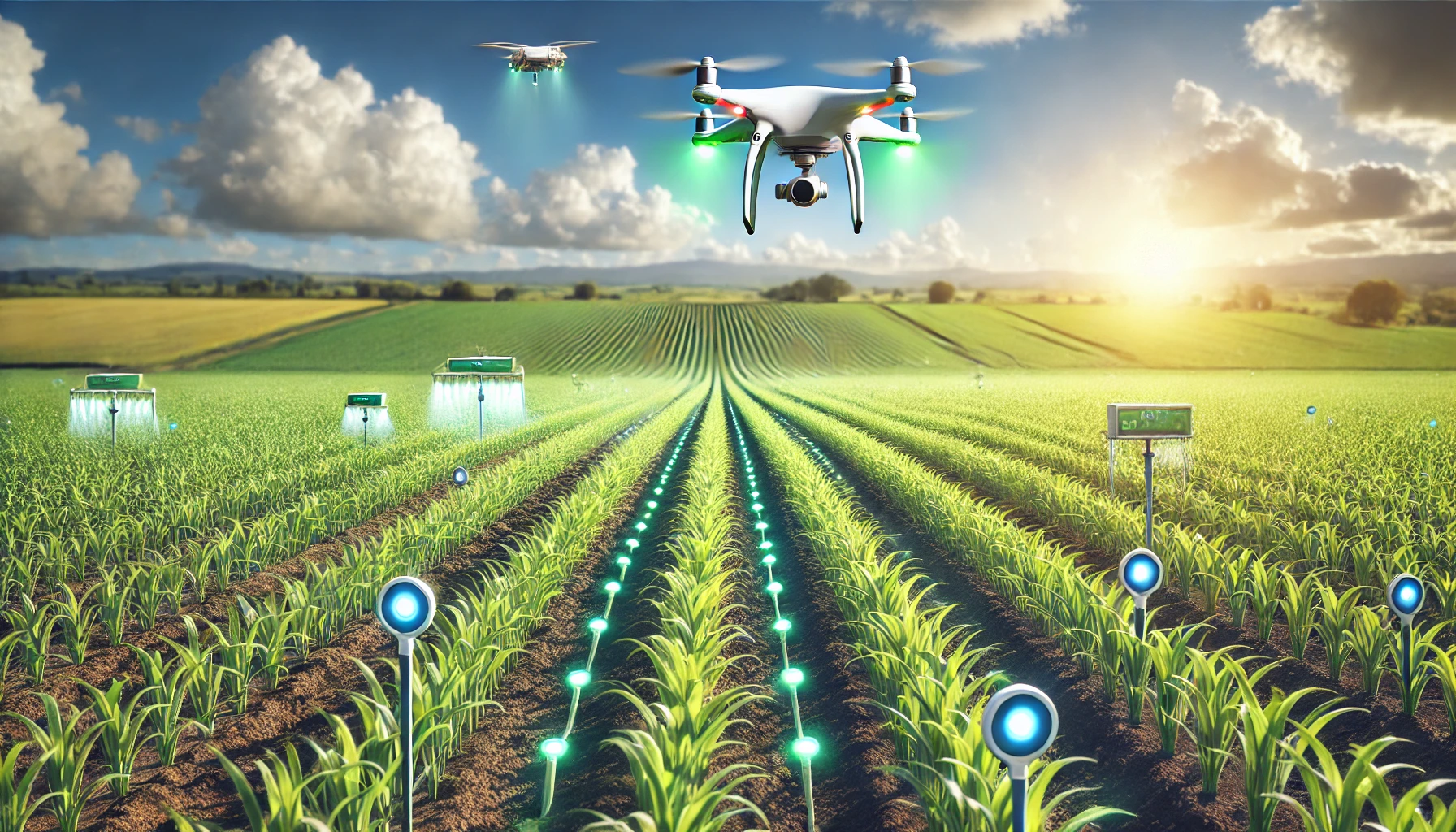Guide to Investing in Location-Based Services and Applications
Nowadays location tracking and sharing services and applications are an integral part of our lives. They calculate and use the exact location of a device, i.e. a person to help navigate, get the useful information and keep them safe. In particular, the ability to track phone number greatly increased the level of control and protection for users. Let us explain the way LBS and technology works and the future prospects for the investments they offer.
Understanding of Location-Based Services and Applications
Location-based services (LBS) and applications refer to software and technologies using the precise location of a device (typically a smartphone or other GPS-enabled device) to provide information, entertainment, or security. These services leverage data from GPS, Wi-Fi, cellular networks, and other location technologies to determine the user's current location precisely or approximately.
The location-based services include location calculation, data processing and service delivery. I.e. the technology is based on identifying the geographic location of the device, collecting, storing, processing, and analyzing location data and delivering relevant content, services, or notifications to the user.
LBS provides number of useful and hard overestimating advantages, e.g., providing personalized and relevant content based on user location, help for better navigation, reducing travel times, and optimizing routes, involving users through location-based interactions and notifications,improvings personal safety with real-time location sharing and emergency services.
How Location-Based Services Works
Location-based services work involves several technologies and processes to determine the geographical location of a device and then deliver relevant information or services based on it. Below you can study a detailed overview of the LBS work process.
GPS (Global Positioning System) uses a network of satellites to provide accurate location data to GPS-enabled devices.
Cellular networks determine location based on the proximity to cell towers. This method is less accurate than GPS but works well in urban areas and indoors.
Wi-Fi positioning uses nearby Wi-Fi networks to triangulate the device's location. This is useful indoors or in dense urban areas if the GPS signals are poor or weak.
Bluetooth beacons are small devices emitting signals. They can be detected and received by smartphones to provide very precise indoor location information.
IP address mapping provides a rough estimate of the location based on the device's IP address.

Types of Location-Based Services and Applications:
The location based technology is widely applied in various industries and provides functionalities to improve convenience, safety, and user engagement. You can study our detailed overview and get acquainted with the different areas of use LBS and applications below.
Location Tracking for Navigation, Mapping and Safety
Google Maps, Waze, Apple Maps provide turn-by-turn directions, traffic updates, and route planning. Apps for indoor navigation helps users navigate within large buildings like malls or airports.
Apps for personal safety e.g., Life360 and Glympse offer advanced protection features for safety and allow users to share precise location information, notifications and routes with family members or friends.
Social Networking and Dating
Foursquare, Swarm allow users to check in at locations, share their whereabouts with friends, and discover new places based on their location history.
Tinder, Bumble use location data to suggest nearby matches and facilitate real-world meetups and connections.
Marketing and Advertising
Geofencing apps send targeted ads or promotions to users entering a specific geographical area, for example, shopping malls or a city center.
Proximity marketing apps use Bluetooth beacons to deliver advertisements or information if users are near a particular point of interest (retail store or a museum exhibit).
Health and Fitness
Runkeeper, Strava apps track physical activities like running, cycling, and walking and provide data on routes, distances, speeds, and calories burned.
Fitness trackers devices like Fitbit and Garmin use location data to monitor exercise patterns, track outdoor activities, and provide insights into overall fitness levels.
Transportation and Ride-Sharing
Uber, Lyft, Grab use location data to connect passengers with nearby drivers and provide real-time ride tracking and estimated arrival times.
Public transit apps offer real-time information on bus or train arrivals, route planning, and service alerts to help users navigate public transportation systems.
Emergency Services
Emergency apps like E911 and others utilize location data to route emergency calls and services to the correct location to ensure timely and accurate responses.
Safety apps (bSafe or Noonlight) offer an SOS button and allow users to send their location to contacts or emergency services in case of distress and provide peace of mind and enhanced safety.
Augmented Reality (AR) and Gaming
Location based games such as Pokémon GO, Ingress and AR games overlay digital content onto the real situation and encourage players to move to different physical locations and interact with game elements.
Retail and E-Commerce
Apps like Nearbuy and AroundMe help users find nearby retail stores, restaurants, and other businesses. Retailers like Walmart and Target use location data to notify stores when customers arrive for curbside pickup to streamline the pickup process.
Travel and Tourism
Apps for traveling for example, TripAdvisor and Yelp provide location based recommendations for restaurants, hotels, attractions, and activities, along with user reviews and ratings. And apps like Lonely Planet and Culture Trip offer personalized travel itineraries and guides based on the user’s current location.
We can hardly imagine our digital experience today without location-based services and applications. Due to these technology and beneficial features these apps provide we can boost our convenience, security and engagement. Additionally the features of these services offer plenty of investment opportunities.

Investment Ideas in LBS Startups and Technologies
Investing in startups and technologies in the location-based services (LBS) space presents a significant opportunity due to the growing reliance on geospatial data across different industries. Below you can study a detailed overview of investment opportunities in LBS startups and technologies.
Navigation and Mapping Solutions Sphere
Here you can consider Waze or Mapbox startups to invest in. The first is known for real-time traffic updates and social navigation. Mapbox provides customizable maps and location data services for app developers and offers tools for creating custom map experiences and real-time location data.
Investment Opportunities:
Autonomous vehicles i.e. advanced navigation systems essential for the development of autonomous vehicles, requiring highly accurate and real-time mapping data
Indoor mapping solutions i.e. developing detailed indoor maps for large buildings like airports, shopping malls, and hospitals, to improve wayfinding and user experiences in complex environments.
Augmented Reality (AR) and Gaming Sphere
Startups to watch are Niantic and 6D.ai.
Niantic is a company that created Pokémon GO and other AR-based location games. The company promotes the integration of real-world locations with virtual gaming experiences. 6D.ai provides tools for AR developers to create realistic and dynamic experiences mapping the physical environment in real time.
Investment Opportunities:
Creating immersive AR experiences for tourism, e.g., virtual historical tours, and education in interactive learning environments (overlaying digital information onto real-world objects).
Developing new games with AR technology to promote users by combining physical and virtual realities and attracting significant user engagement through in-app purchases and advertising.
Retail and Proximity Marketing Sphere
Consider startups such as Foursquare and Shopkick.
Foursquare is ideal for businesses to help them understand customer behavior and optimize marketing strategies based on location data and analytics. And the second startup (Shopkick) provides rewards and deals to shoppers based on their location, enhancing customer engagement.
Investment Opportunities:
Improving customer engagement through personalized, location based advertisements targeting users based on their proximity to stores or specific areas.
Implementing geofencing to trigger promotions and notifications if customers enter designated areas, driving foot traffic and increasing sales.
Transportation and Logistics Sphere
Startups to Watch are Uber and Onfleet.
Uber app uses location data for ride sharing services and connects drivers with passengers based on their precise real-time locations. Onfleet provides last-mile delivery solutions using location data to optimize delivery routes and improve efficiency.
Investment Opportunities:
Improving route optimization for logistics companies to reduce delivery times and fuel consumption, leading to significant cost savings and better service quality.
Enhancing fleet management with real-time location tracking to monitor vehicle locations, manage driver behavior, and improve operational efficiency.
Smart Cities and IoT Sphere
Startups to invest are WayCare and Moovit.
WayCare uses location data to improve traffic management and safety, analyzing real-time traffic patterns and incident reports. Due to Moovit users can check public transportation data and mobility solutions to plan their journeys and access real-time transit information.
Investment Opportunities:
Implementing smart traffic management systems using current data to optimize traffic flow, reduce traffic jams, and improve road safety.
Developing IoT solutions utilizing location data for better urban planning, including monitoring air quality, managing public utilities and safety.
Emergency Services and Safety Sphere
Startups to learn are RapidSOS and Number Tracker.
RapidSoS extends the capabilities of emergency response systems with accurate location data to ensure rapid and effective emergency response. Number Tracker provides advanced family safety services due to location tracking to help families stay connected and safe.
Investment Opportunities:
Creating location-based safety solutions providing real-time alerts and emergency response capabilities for schools, workplaces, and public venues.
Developing apps significantly increasing personal safety and enabling quick assistance in emergencies.
Agriculture and Environmental Monitoring Sphere
Taranis and Descartes Labs are startups to watch.
Due to Taranis and its aerial imagery and location data tracking farmers can monitor crop health, care for agriculture and optimize yields. Descartes Labs provides geospatial data analytics for environmental monitoring and enables better decision making in agriculture and conservation.
Investment Opportunities:
Investing in technologies based on location data to optimize crop management, e.g., soil analysis, irrigation planning, and pest control.
Developing systems tracking environmental changes, wildlife in real time and monitoring deforestation and managing natural resources sustainably.
Tourism and Hospitality Sphere
Startup to watch is Roadtrippers.
Roadtrippers provides travel planning tools with location-based recommendations and enables users to plan detailed itineraries.
Investment Opportunities:
Creating apps providing personalized travel itineraries using location data, offering recommendations based on user preferences and current location.
Implementing location-based services in hotels to improve guest experiences, e.g. mobile check-in, room navigation, and personalized concierge services.
These location based technologies will play an increasingly important role in shaping the future of many industries from transportation and logistics to retail and smart cities sectors. Finding and supporting successful projects in this area will help investors gain market access, significant growth and progress.
Final Points
Location based services and applications offer users convenient and secure solutions for a variety of tasks. Due to them people can reveal new business opportunities and improve their everyday life. Investing in startups and new location based projects related to every aspect of our life promises great results based on the growing demand for accurate and up-to-date location data. Later, these investments will pay you significant dividends and drive innovation and technology to make our world more connected and secure.
Popular
Discover actionable strategies for investing in emerging markets in 2024. Learn how to harness technological advancements, consider ESG factors, build collaborative partnerships, invest in education, ...
Discover the potential of investing in location-based services and applications. Learn how LBS works, explore various applications, and uncover lucrative investment opportunities in this growing field...
Discover how investing in old coins can diversify your portfolio with historical value and potential profit. Learn the best coins to invest in, tips for finding rare coins like coin identification app...

